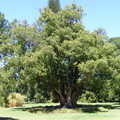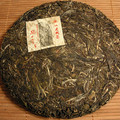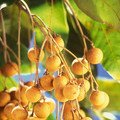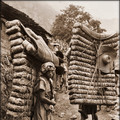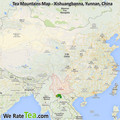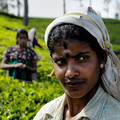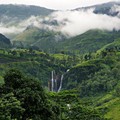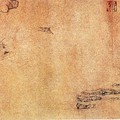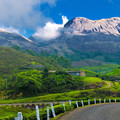Puer Tea Glossary - Zhi Zheng Tea Shop
„nei xiang;内香 - refers to a kind of fragrance that is not 'yang' or obvious. Often not perceived till after the tea has been swallowed. Sometimes also 幽香 - you xiang.“
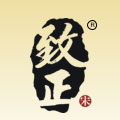
Quotes Tags: China, Experiencing tea, Pu-erh
- Discussion: 0 comments
- Write a comment
Teas - Pu-erh
2015 Quanjihao Manzhuan Raw Puerh Tea
 0 reviews
0 reviewsEstablished in the Qing Dynasty and passed down for thirteen generations, Quanjihao...
2014 Laos Ban Komaen (Blue) Gu Shu Raw
 0 reviews
0 reviewsPhôngsali is a province of Laos, bordering Yiwu, Yunnan. It is located high in the...
2009 Menghai "Spring of Menghai" Raw
 1 review
1 reviewThis is a newer Menghai release, first released in 2005 and then again in 2006, 2007,...
2005 Nan Nuo Shan Raw Chi Tse Bing Cha
 1 review
1 reviewThis is a classic and old style cake from Nannuoshan Tea Factory which was renamed as...
2014 White2Tea New Amerykah 2
 1 review
1 reviewAn old arbor Menghai blend. Thick body, lingering kuwei [pleasant bitterness], and...
Lao ManE 2013 autumn
 1 review
1 reviewThe LaoManE rules over this autumn teas. In this village you may find really bitter tea...
Quotes - Pu-erh
„Yunnan Provincial Government has stipulated that for tea to qualify as Pu er it must be:
i) of the Broad Leaf variety (Sinensis Assamica)
ii) grown in the Lancang (Mekong) River region
iii) sun dried. The third point is important as there is much tea grown in the Lancang River area that is not sun dried.
There are also increasing amounts of Small Leaf Variety (Xiao Ye Zhong /小叶种) being grown in the Lancang River area.“

Quotes Tags: Pu-erh, Tea production, Yunnan, China, Lancang
Video - Pu-erh
Theme
Teas
2015 Chawangpu Menghai "Cheng Shuang" Xiao
 1 review
1 reviewCheng Shuang 成双 means in pairs This cake is blend of two villages and mountain in Menghai...
2012 Autumn Te Ji Grade Lianghe Hui Long
 1 review
1 reviewHigh grade famous high mountain green tea from Huilong Zhai, Dachang village, Lianghe county, Dehong...
2015 Chawangpu Bada Lao Yu Xiao Bing
 1 review
1 reviewLao Yu (老妪) : old woman Material for this cake came from a small Bulang village in Bada...
Tea by region
We will help you with tea selection.
Do you like quality loose tea?
We will help you to find the right one for you. Be inspired by tea ratings of other tea lovers. Rating stars could help you.


Review your cup of tea.
Review the tea you are drinking and help other tea lovers to find the right cup of tea.






 Shops
Shops Share on Facebook
Share on Facebook






